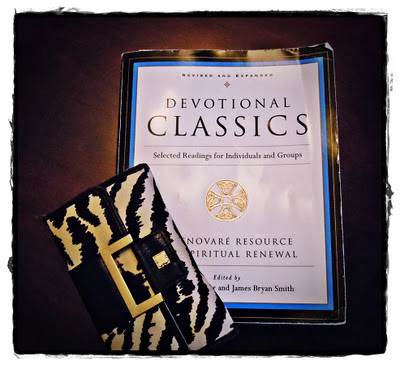C.S. Lewis reminds us that being a Christian is not like paying your taxes, where you give God what he is due and hope there is a little left over for yourself. He says: "The terrible thing, the almost impossible thing, is to hand over your whole self - all your wishes and precautions - to Christ. But it is far easier than what we are trying to do instead. For what we are trying to do is to remain what we call 'ourselves,' to keep personal happiness as our great aim in life, and yet at the same time be 'good.'" (9)
Philosopher Dallas Willard (another contributor to the book) likes to turn things around in order to make a point. He asks not how much learning to be like Jesus (discipleship) costs, but what it costs us if we don't do it: "Nondiscipleship costs abiding peace, a life penetrated throughout by love, faith that sees everything in the light of God's overriding governance for good, hopefulness that stands firm in the most discouraging of circumstances, power to do what is right and withstand the forces of evil." (16) He also prods us on by saying that if we are going to doubt our beliefs, then we must also be willing to doubt our doubts. That takes a lot of courage. Costly courage.
Yes, we are too easily swayed by our consumer attitudes and readily convinced by expert marketers that something of great value can be had for a very low cost. Not true. The cost of a rich and meaningful life that reaches beyond my little world involves sacrifice, love, and surrender. No other way to do it. Jesus help me. I have some big bills coming up.
Quotes from Devotional Classics, edited by Richard J. Foster and James Bryan Smith. HarperCollins, 2005.
the photo: the textbook and my wallet.

Comments
Most of us aren't willing to consider our ideology, our "spirituality", as part of the problem. We can not realize our potential, until we are willing to consider that we do not really have a personal relationship with the creator of the universe.
It is only when we are willing to relinquish our Christian exceptionalism, that the "Word can become flesh".